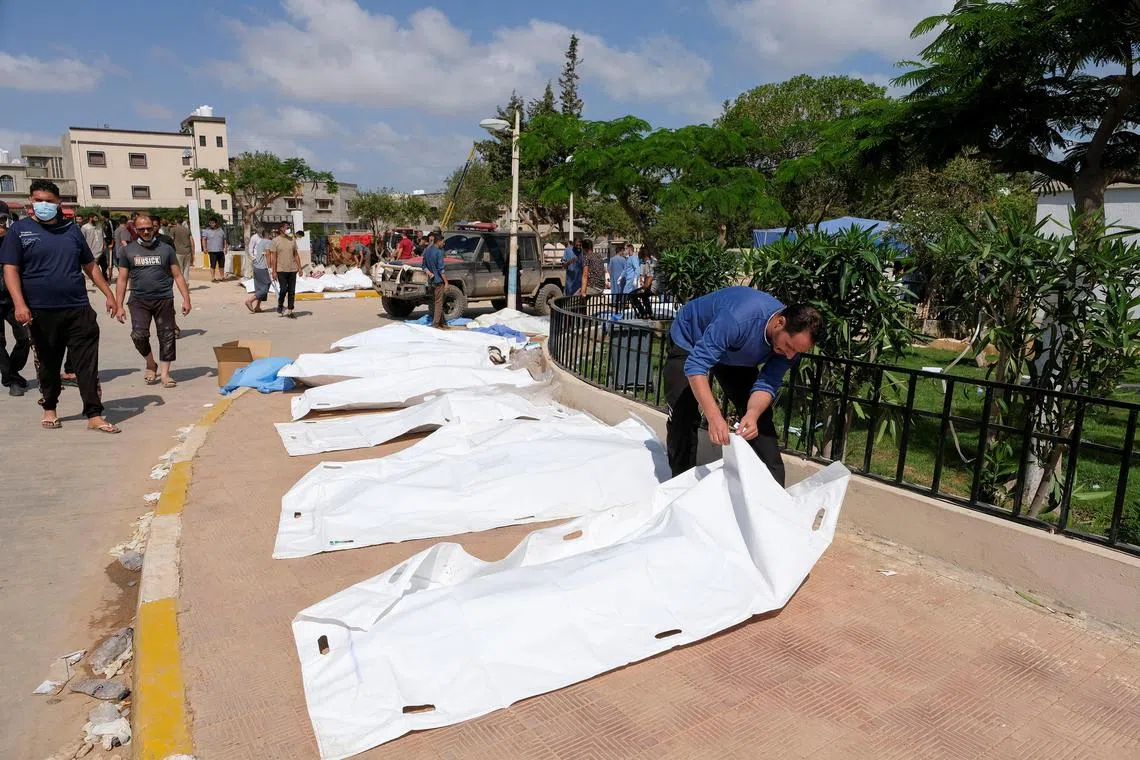Casualties in Libya floods could have been avoided with warning system: UN agency
Sign up now: Get ST's newsletters delivered to your inbox

A flash flood hit eastern Libya at the weekend, killing at least 4,000, with thousands more missing and feared dead.
PHOTO: REUTERS
Follow topic:
GENEVA - The head of the World Meteorological Organisation (WMO) said casualties could have been avoided in the floods that hit Libya if the divided country had a functional weather service able to issue warnings.
The secretary-general of the United Nations agency, Mr Petteri Taalas, told reporters in Geneva on Thursday that Libya’s main challenge in the aftermath of floods that have killed thousands was that the government was “not functioning normally”.
If there had been “a normally operating meteorological service”, it could have issued warnings, he said. “The emergency management authorities would have been able to carry out evacuation of the people. And we could have avoided most of the human casualties.”
The comments came after a tsunami-sized flash flood hit eastern Libya at the weekend, killing at least 4,000 people, with thousands more missing and feared dead. reduced the city of Derna to an apocalyptic wastelan
“The flooding events came and there was no evacuation taking place, because there was not the proper early warning systems in place,” Mr Taalas said.
If evacuations had taken place, the human toll would have been far lower, he said.
“Of course we cannot fully avoid economic losses, but we could have also minimised those losses by having proper services in place.”
Libya’s National Meteorological Centre did issue early warnings for the extreme weather 72 hours in advance. It had notified the governmental authorities by e-mail, urging them to take preventative measures.
But WMO said it was “not clear whether (the warnings) were effectively disseminated”. It said the once close cooperation between meteorological services and disaster management throughout Libya no longer existed.
While no evacuation was ordered, there was a curfew in several eastern towns, including Derna, meaning most people were at home when the dams burst.
WMO’s regional office in Bahrain said “the problem was not in issuing the warning” in a timely manner, but the fact that “there was no capacity to handle such a situation”, especially as the failure of the two dams created an “unprecedented” situation.
“Disaster management has indeed broken down in Libya.”
Libya is currently politically divided and has been at war on and off, with no strong central government since a Nato-backed uprising toppled Muammar Gaddafi in 2011. REUTERS, AFP

